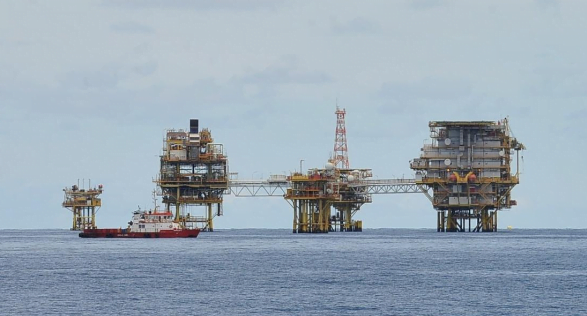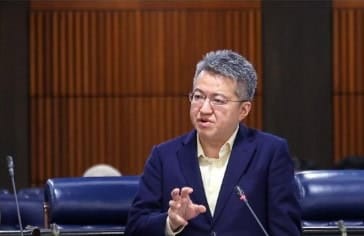
KUALA LUMPUR, Dec 10 — Price volatility in the energy market is not an issue that merely impacts one country; it is a global issue.
The sector is now facing a crisis where demand for energy commodities has exceeded supply and caused volatility in terms of pricing, with global spot prices for natural gas and coal reaching their highest levels this year.
On Sept 28, 2021, crude oil prices headed for a bull run by breaching the US$80 per barrel mark and continued to increase to reach a three-year high of US$83 per barrel on Oct 13, before declining to US$70 per barrel in December. (US$1=RM4.22)
An energy crisis in two of Asia’s key economies, China and India, caused power shortages and drove up the market price of coal as well. Coal price reached a historic high of up to US$270 per metric tonne in October 2021.
There were several contributing factors, but the primary causes were China’s rapid growth, insatiable demand for energy and shortage of coal supply. The world’s second-largest economy’s appetite for energy is always a key driver of global market prices. Its post-COVID economic ramp-up has coincided with an uptick in demand across Asia and Europe too.
As economies begin to recover, countries that experience a long cold winter that depleted gas storage levels, have been left scrambling to secure more supplies, compounding the impact on fuel and electricity around the world.
According to a Bloomberg news report, some utilities in China have not completed winter restocking and insist there is only limited supply available. Meanwhile, several industrial sectors that are large energy users continue to have their power supply curtailed or they would face significantly higher electricity costs.
SECURING FUEL STOCK
China, the world’s top coal consumer, said it will expand coal procurement at any price to ensure heating and power generation in winter.
Consequently, this move threatens to leave less fuel for energy-starved rivals.

Traditionally, China bought nearly all of its coal supplies from producers within Asia, but due to political disputes, the country is boosting coal imports from some of South Asia and Europe’s mainstay suppliers.
At the same time, Europe has been trying to snag shipments away from Asia, while importers in Eastern Europe have been buying supplies from Australia, and this is considered a rare move that shows how desperate these countries are for coal.
Bloomberg said global coal supplies have fallen and there are shortages of coal in some markets as major coal producers, Colombia and Indonesia, have struggled with heavy rain, while mines elsewhere were closed due to the pandemic.
However, the intervention from China’s authorities to both raise domestic coal production and cap the domestic price has put downward pressure on coal prices.
HIGHER ELECTRICITY PRICES
The cost of commodities such as oil, coal and natural gas has a major impact on the cost of electricity generation. Therefore, the shortage of supply, it creates a knock-on impact for electricity tariffs.
Singapore, which relies on imported natural gas for almost all of its electricity production and is highly exposed to global supply and demand shocks, has started to raise electricity prices in April 2021, mainly due to the higher cost of fuel for producing electricity by the power generation companies.
According to The Straits Times, Singapore’s electricity tariffs would be reviewed every quarter based on guidelines set by the electricity industry regulator, Energy Market Authority (EMA). For the April-June period, the tariff for households increased by 8.7 per cent from the previous quarter, while the increase was 3.9 per cent for July-September and 3.1 per cent for October-December.
Its manpower minister, Tan See Leng, also has warned of an electricity price hike in 2022 amid the “unprecedented storm” in the energy market.
Electricity prices in Spain, Bulgaria, as well as other countries in Europe, are at record highs due to the increase in fuel prices. To protect the consumers, the European Union (EU) government has moved to mitigate rising electricity prices by offering subsidies, tax cuts and grants.
Spain was one of the first countries that introduce measures to help customers. Spain’s left-wing government has agreed on emergency measures to cut spiraling energy bills as electricity prices climb to record levels. Electricity taxes are being cut temporarily from 5.1 per cent to the minimum of 0.5 per cent allowed under EU rules. Value-added tax (VAT) on bills was already reduced in July 2021.
In Bulgaria, power prices have increased by 72 per cent since the beginning of the year. Bulgaria’s government has proposed to introduce subsidies to ease the pressure of high electricity prices.
Meanwhile, in Malaysia, fuel and generation costs account for around 70 per cent of the total tariff cost paid by national utility giant Tenaga Nasional Bhd’s (TNB) customers, while the balance of 30 percent largely comprises operational and maintenance costs. Malaysia’s domestic electricity tariff is among the lowest in the world.
Hence, the changes in electricity tariff are beyond TNB or the government’s capability to control as the tariff is extremely vulnerable to fluctuations in global fuel prices, such as those for coal and natural gas.
ICPT INITIATIVE
However, thanks to the Incentive-Based Regulation (IBR) under the Energy Commission, the country’s electricity framework has remained flexible and sustainable. it has also helped TNB to predict electricity demand and future production costs.
IBR’s implementation includes flexible components through the use of the Imbalance Cost Pass-Through (ICPT) which enables electricity producers to adapt tariffs in response to global fuel prices, making the production of electricity far more economically resilient to fluctuating fuel prices.
At present, the average base tariff has been maintained at 39.45 sen per kilowatt-hour until Dec 31, 2021. Hence the tariff review and implementation of IBR’s Third Regulatory Period (RP3 2021-2023) will be delayed by one year and is set to run from Jan 1, 2022, to Dec 31, 2024.
The fuel and generation component of the tariff is uncontrollable and is subject to an ICPT review every six months.
TNB said during the period of January-June 2021, there was a slight increase in the average coal price delivered to the power sector at between US$79.20 and US$92 per tonne compared to the benchmark coal price set in the base tariff at US$75 per tonne.





More Stories
Nation Recovers RM15.5 Billion Of Its Revenue, War Against Corruption And Cartels To Go On – Anwar
Budget 2026 Reflects Govt’s Commitment To Integrity, Curbing Leakages – Azam
Dewan Negara Passes Five Bills Including Legal Aid And Public Defence 2025